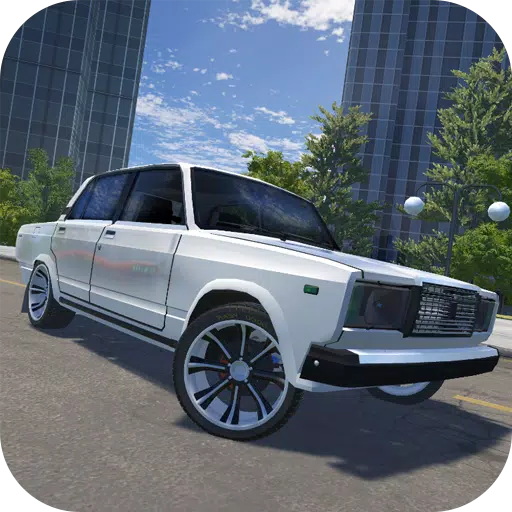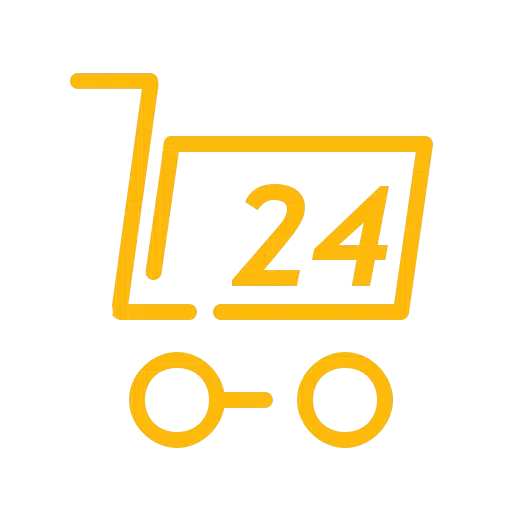"Nintendo Consoles: Complete Release Date Timeline"
Nintendo, a name synonymous with video games, has consistently been at the forefront of creativity and innovation in the gaming industry. With a rich history spanning decades, Nintendo's vast library of beloved intellectual properties continues to captivate gamers worldwide. As the company gears up for the release of the Nintendo Switch 2, it's the perfect time to reflect on their remarkable journey in the console market.
Below, we've compiled a comprehensive list of every console Nintendo has ever released. Take a nostalgic trip through time and see how Nintendo has continuously pushed the boundaries of gaming technology!
AnswerSee Results*Looking to save on a new Nintendo Switch or new titles for your system? Be sure to check out the best Nintendo deals available today.*How Many Nintendo Consoles Have There Been?
In total, 32 Nintendo consoles have been released throughout Nintendo's history. The Switch 2 will be the 33rd. We've included revision models for both home and handheld consoles, which include brandings like XL and Mini.
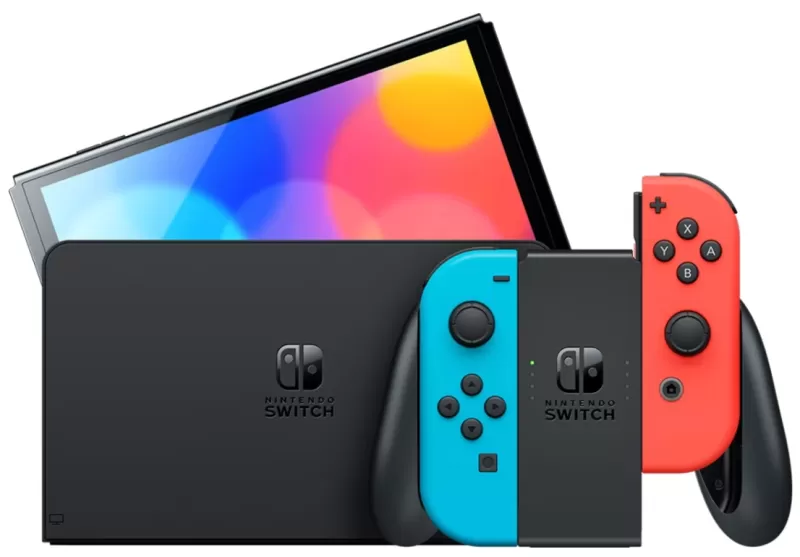 Latest Model### Nintendo Switch OLED (Neon Blue & Red)
Latest Model### Nintendo Switch OLED (Neon Blue & Red)
4See it at AmazonEvery Nintendo Console in Order of Release
Color TV-Game - June 1, 1977
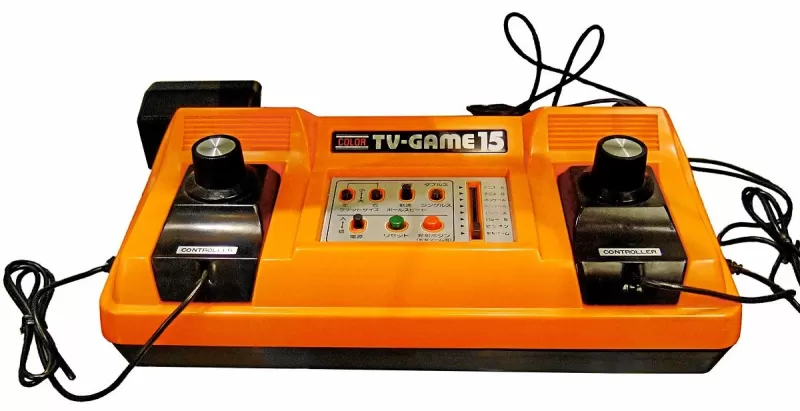 Nintendo's inaugural step into the gaming hardware market was the Color TV-Game line, developed in collaboration with Mitsubishi Electronics. These consoles were a significant success, marking the beginning of Nintendo's hardware legacy that continues to thrive almost five decades later.
Nintendo's inaugural step into the gaming hardware market was the Color TV-Game line, developed in collaboration with Mitsubishi Electronics. These consoles were a significant success, marking the beginning of Nintendo's hardware legacy that continues to thrive almost five decades later.
Game & Watch - April 28, 1980
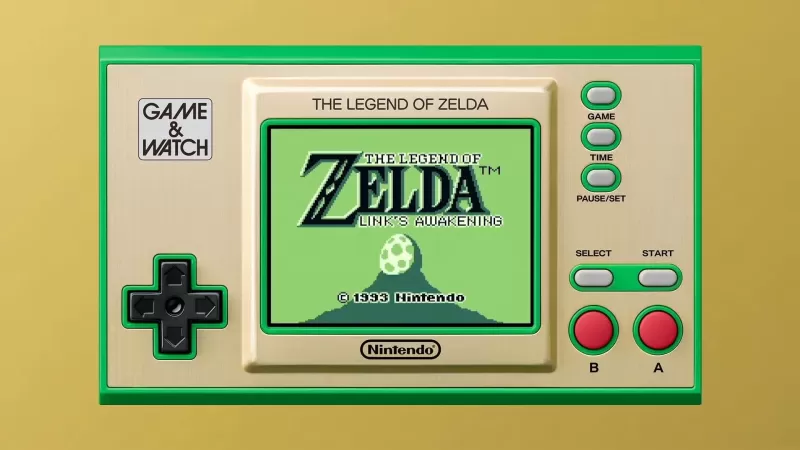 Marking Nintendo's entry into handheld gaming, the Game & Watch series sold over 40 million units worldwide. These devices introduced innovations like the D-Pad, which remains a staple in gaming. Their recent limited edition releases celebrate iconic franchises like Mario and Zelda.
Marking Nintendo's entry into handheld gaming, the Game & Watch series sold over 40 million units worldwide. These devices introduced innovations like the D-Pad, which remains a staple in gaming. Their recent limited edition releases celebrate iconic franchises like Mario and Zelda.
Nintendo Entertainment System - October 18, 1985
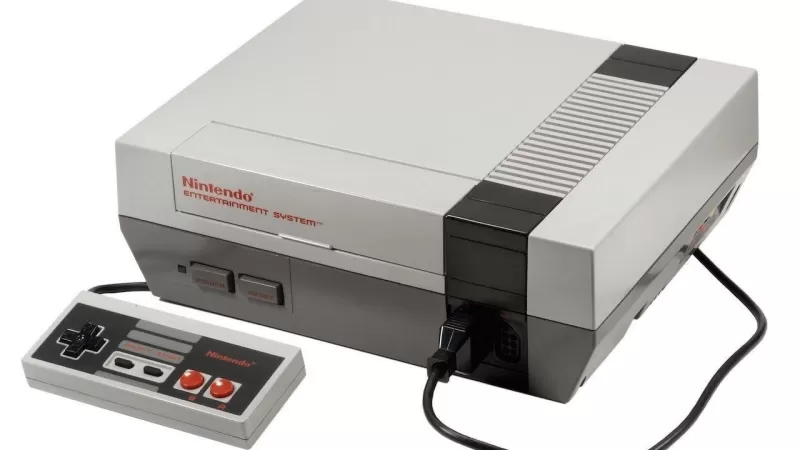 Known as the Famicom in Japan, the Nintendo Entertainment System (NES) revolutionized home gaming with its cartridge system. It launched legendary franchises such as Super Mario, The Legend of Zelda, and Metroid, cementing its place as a cornerstone in video game history.
Known as the Famicom in Japan, the Nintendo Entertainment System (NES) revolutionized home gaming with its cartridge system. It launched legendary franchises such as Super Mario, The Legend of Zelda, and Metroid, cementing its place as a cornerstone in video game history.
Game Boy - July 31, 1989
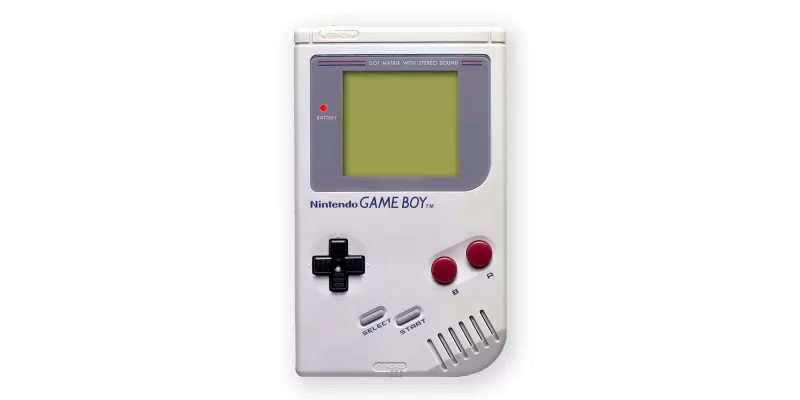 Game Boy revolutionized handheld gaming with its cartridge system, allowing players to enjoy a wide variety of games. Its bundled game, Tetris, became iconic, contributing to the console's widespread success.
Game Boy revolutionized handheld gaming with its cartridge system, allowing players to enjoy a wide variety of games. Its bundled game, Tetris, became iconic, contributing to the console's widespread success.
Super Nintendo Entertainment System - August 23, 1991
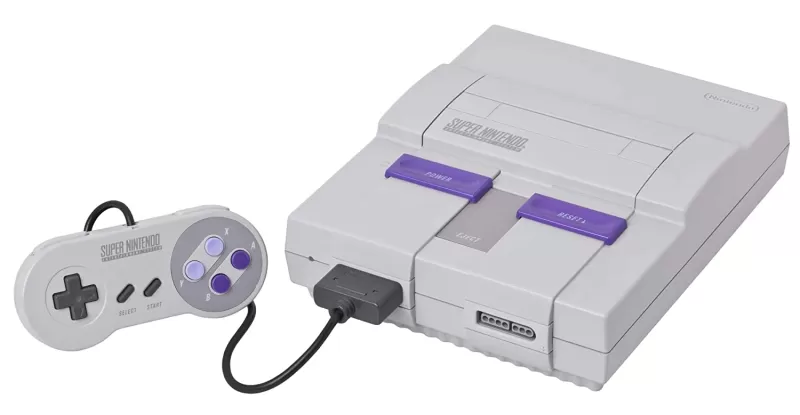 Introducing 16-bit graphics to Nintendo's lineup, the Super Nintendo Entertainment System (SNES) was home to groundbreaking titles like Super Mario World and Donkey Kong Country. Despite launching later in its generation, it became the best-selling console due to its exceptional game library and broad appeal.
Introducing 16-bit graphics to Nintendo's lineup, the Super Nintendo Entertainment System (SNES) was home to groundbreaking titles like Super Mario World and Donkey Kong Country. Despite launching later in its generation, it became the best-selling console due to its exceptional game library and broad appeal.
Virtual Boy - August 14, 1995
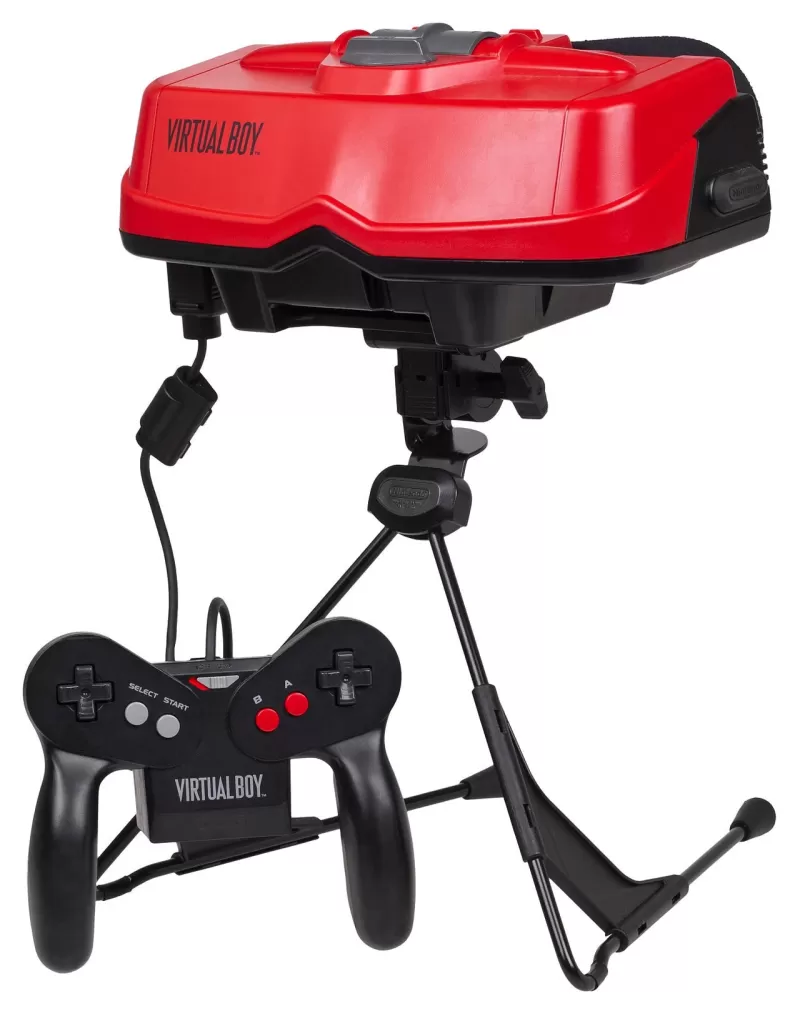 Nintendo's most unconventional console, the Virtual Boy, introduced 3D visuals to portable gaming. Though it had a short lifespan and limited game releases, it remains a fascinating piece of gaming history.
Nintendo's most unconventional console, the Virtual Boy, introduced 3D visuals to portable gaming. Though it had a short lifespan and limited game releases, it remains a fascinating piece of gaming history.
Game Boy Pocket - September 3, 1996
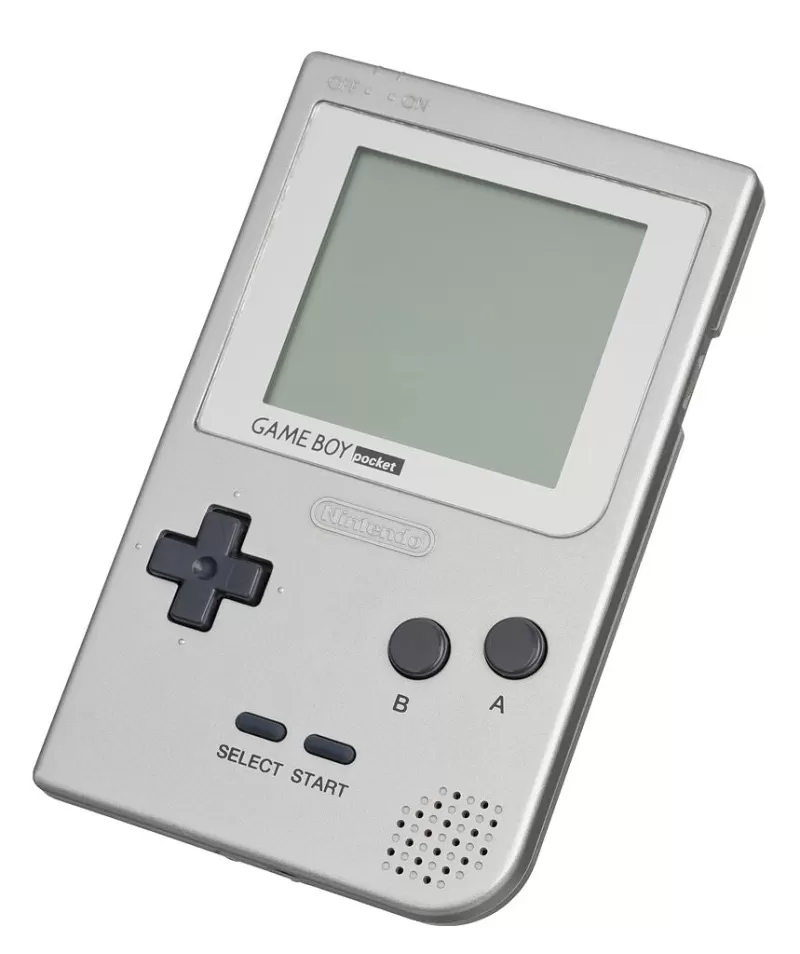 An improved version of the original Game Boy, the Game Boy Pocket featured a sharper black-and-white screen and enhanced hardware, though it had a shorter battery life due to its smaller size.
An improved version of the original Game Boy, the Game Boy Pocket featured a sharper black-and-white screen and enhanced hardware, though it had a shorter battery life due to its smaller size.
Nintendo 64 - September 29, 1996
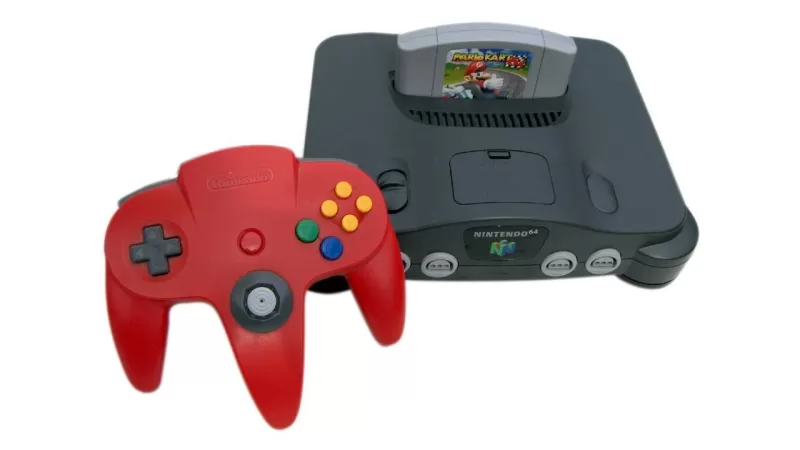 Nintendo 64 brought 3D gaming to the home console market with revolutionary titles like Super Mario 64 and The Legend of Zelda: Ocarina of Time. Its innovative controller with an analog stick redefined gameplay and led to various special edition releases.
Nintendo 64 brought 3D gaming to the home console market with revolutionary titles like Super Mario 64 and The Legend of Zelda: Ocarina of Time. Its innovative controller with an analog stick redefined gameplay and led to various special edition releases.
Game Boy Light - April 14, 1998
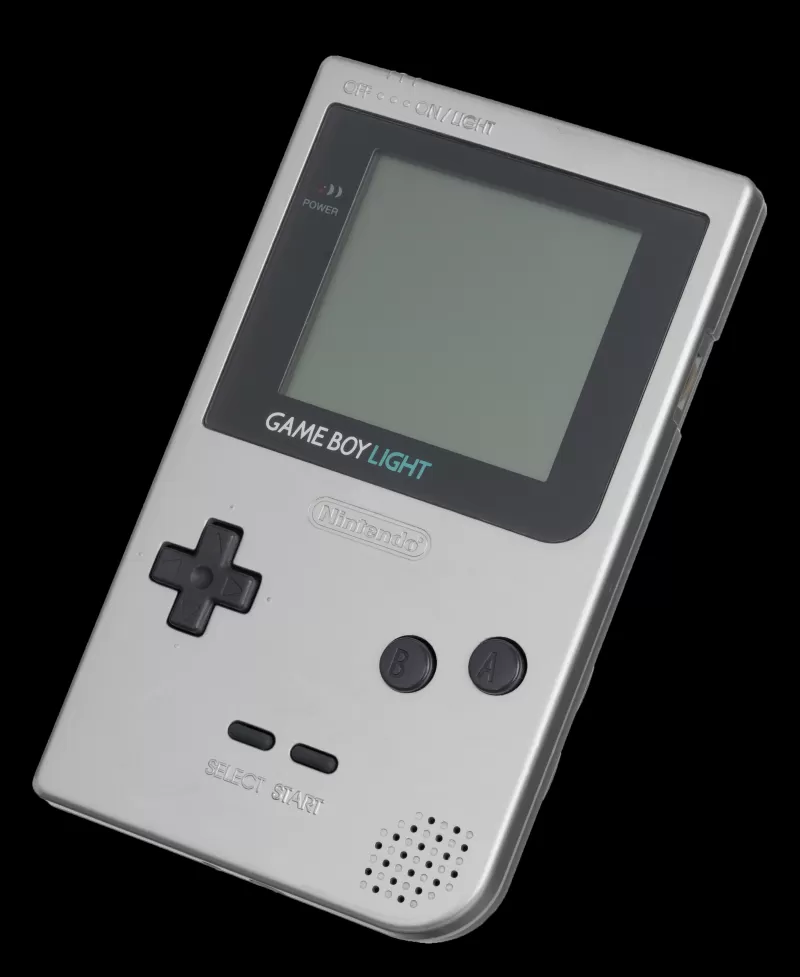 Exclusive to Japan, the Game Boy Light featured a backlight for low-light gaming and improved battery life. Its larger size compared to the Game Boy Pocket made it a unique offering in the handheld market.
Exclusive to Japan, the Game Boy Light featured a backlight for low-light gaming and improved battery life. Its larger size compared to the Game Boy Pocket made it a unique offering in the handheld market.
Game Boy Color - November 18, 1998
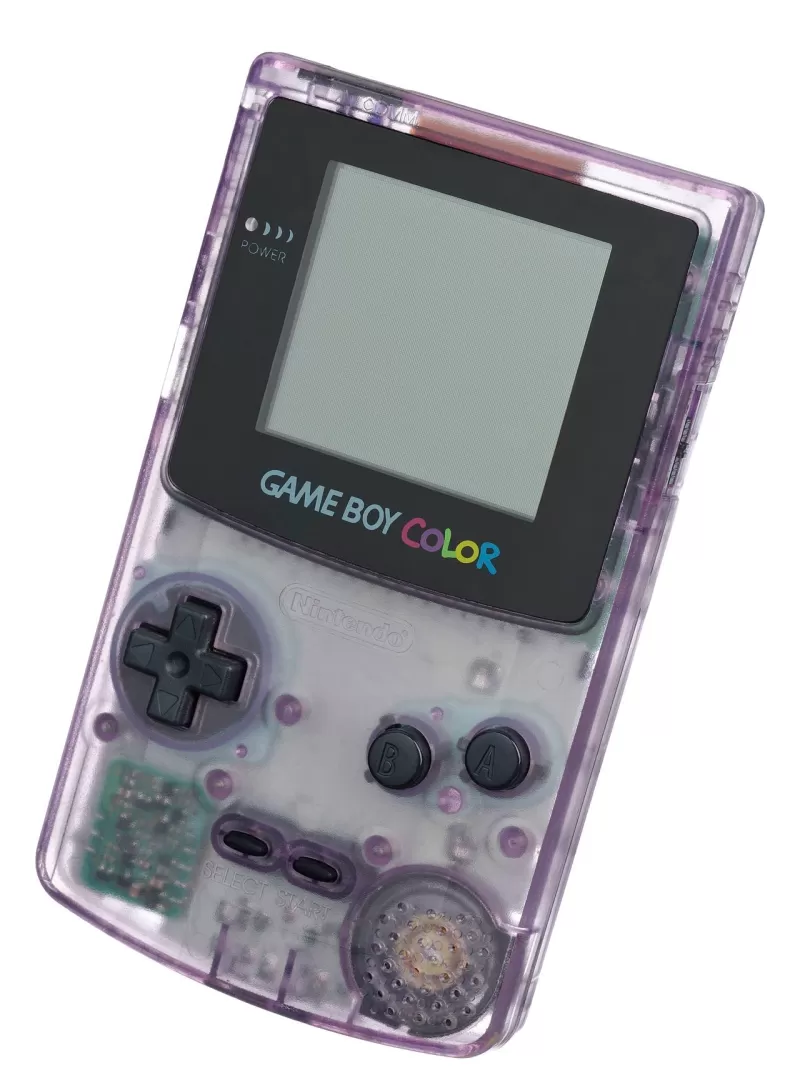 Game Boy Color brought vibrant color to Nintendo's handhelds, with backwards compatibility for original Game Boy titles. Its enhanced hardware supported a new wave of colorful games, rejuvenating the handheld market.
Game Boy Color brought vibrant color to Nintendo's handhelds, with backwards compatibility for original Game Boy titles. Its enhanced hardware supported a new wave of colorful games, rejuvenating the handheld market.
Game Boy Advance - June 11, 2001
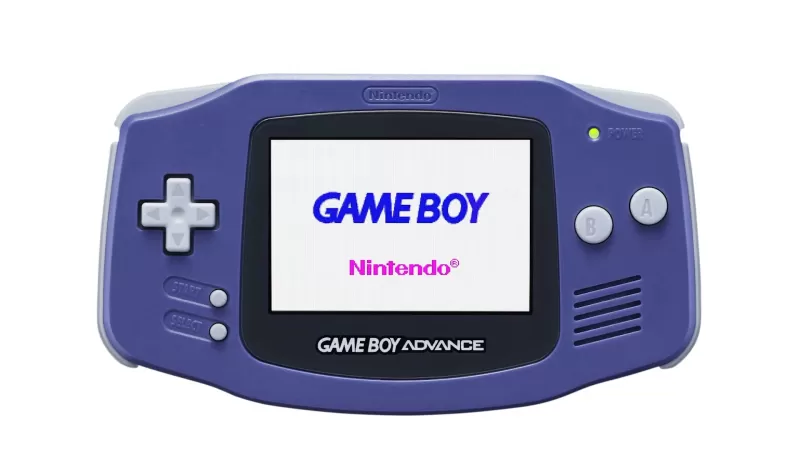 Game Boy Advance marked a significant leap in handheld gaming technology with its 16-bit graphics and horizontal design. It supported thousands of games through backwards compatibility, including classics from the Game Boy and Game Boy Color.
Game Boy Advance marked a significant leap in handheld gaming technology with its 16-bit graphics and horizontal design. It supported thousands of games through backwards compatibility, including classics from the Game Boy and Game Boy Color.
Pokémon mini - November 16, 2001
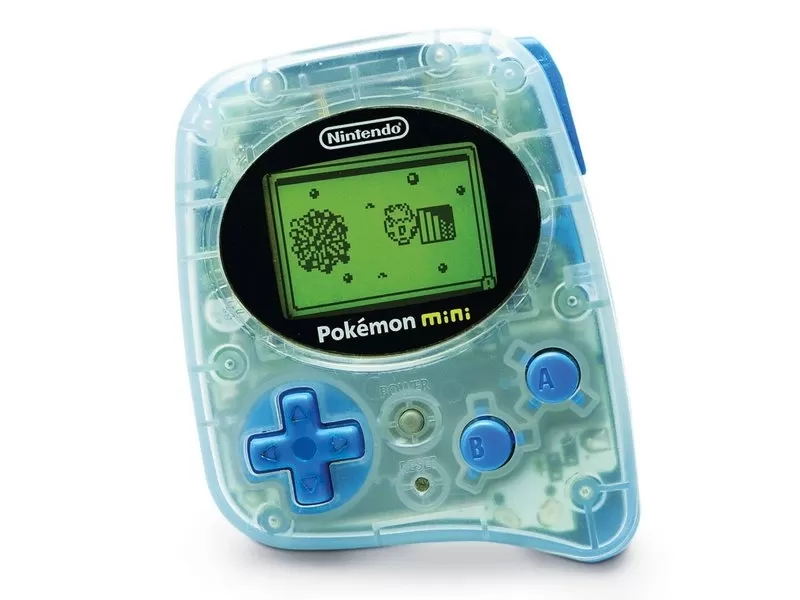 Image Credit: GamesRadarThe Pokémon mini was a compact device focused exclusively on Pokémon games. Despite its limited game library, it offered unique features like a built-in clock, infrared port, and rumble functionality.
Image Credit: GamesRadarThe Pokémon mini was a compact device focused exclusively on Pokémon games. Despite its limited game library, it offered unique features like a built-in clock, infrared port, and rumble functionality.
Nintendo GameCube - November 18, 2001
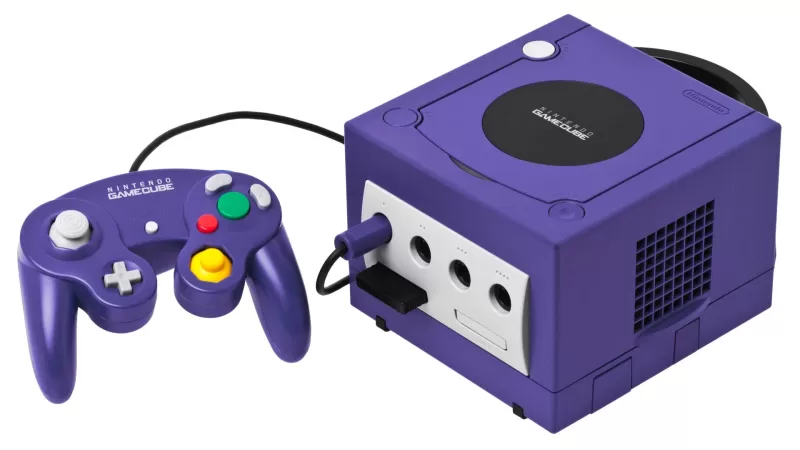 Nintendo GameCube continued the legacy of the Nintendo 64 with sequels to beloved titles like Super Mario Sunshine and The Legend of Zelda: Wind Waker. Its shift to disc-based media and improved controller design solidified its place in gaming history, with franchises like Animal Crossing gaining enduring popularity.
Nintendo GameCube continued the legacy of the Nintendo 64 with sequels to beloved titles like Super Mario Sunshine and The Legend of Zelda: Wind Waker. Its shift to disc-based media and improved controller design solidified its place in gaming history, with franchises like Animal Crossing gaining enduring popularity.
Panasonic Q - December 14, 2001
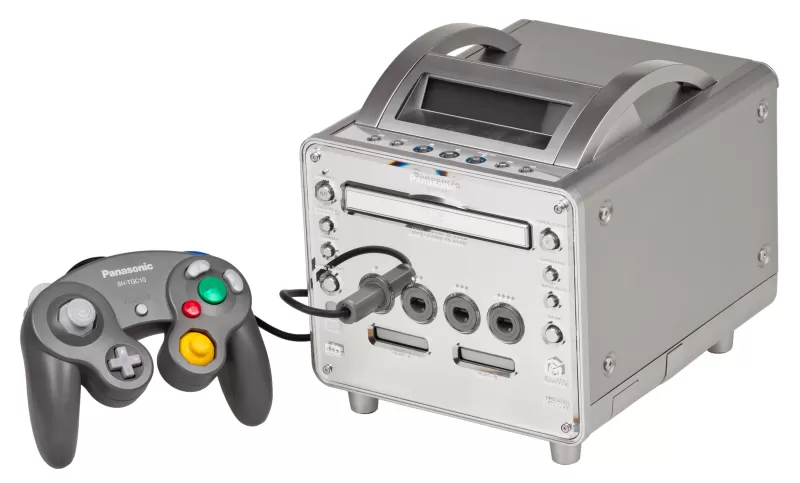 A unique collaboration between Panasonic and Nintendo, the Panasonic Q combined GameCube gaming with DVD playback. Its sleek design and multi-functionality were impressive, though its high cost limited its market success.
A unique collaboration between Panasonic and Nintendo, the Panasonic Q combined GameCube gaming with DVD playback. Its sleek design and multi-functionality were impressive, though its high cost limited its market success.
Game Boy Advance SP - March 23, 2003
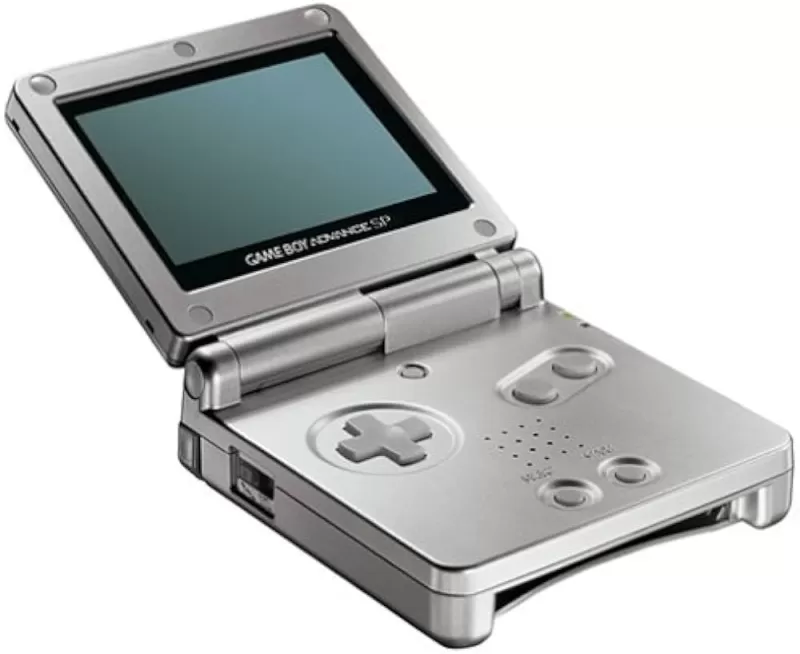 Game Boy Advance SP introduced a foldable design, rechargeable battery, and later models featured a backlit screen. Its ergonomic improvements made it a popular choice among gamers.
Game Boy Advance SP introduced a foldable design, rechargeable battery, and later models featured a backlit screen. Its ergonomic improvements made it a popular choice among gamers.
Nintendo DS - November 21, 2004
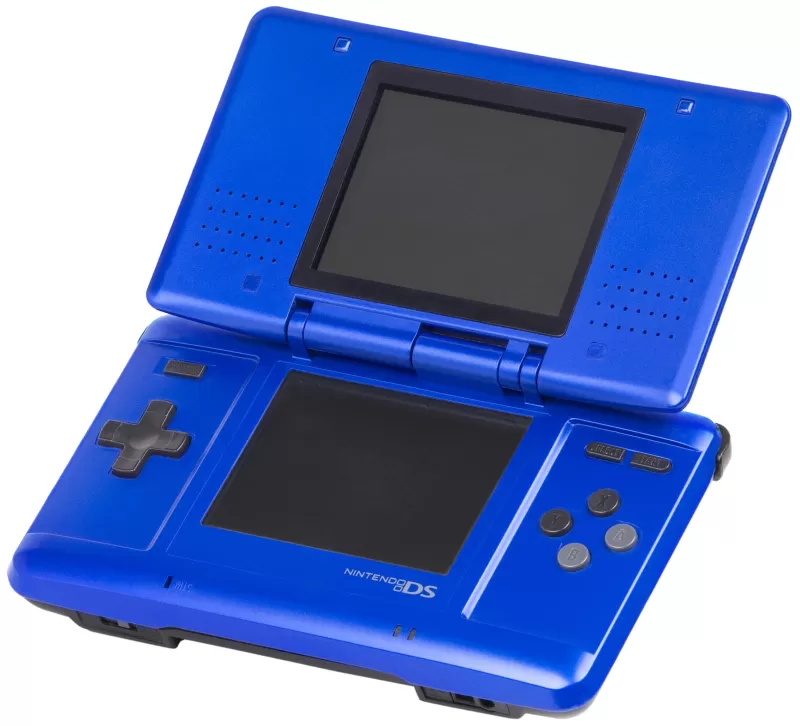 Launching the best-selling DS line, the Nintendo DS introduced dual-screen gameplay with a touchscreen and Wi-Fi support. Its innovative design inspired a host of unique gaming experiences.
Launching the best-selling DS line, the Nintendo DS introduced dual-screen gameplay with a touchscreen and Wi-Fi support. Its innovative design inspired a host of unique gaming experiences.
Game Boy Micro - September 19, 2005
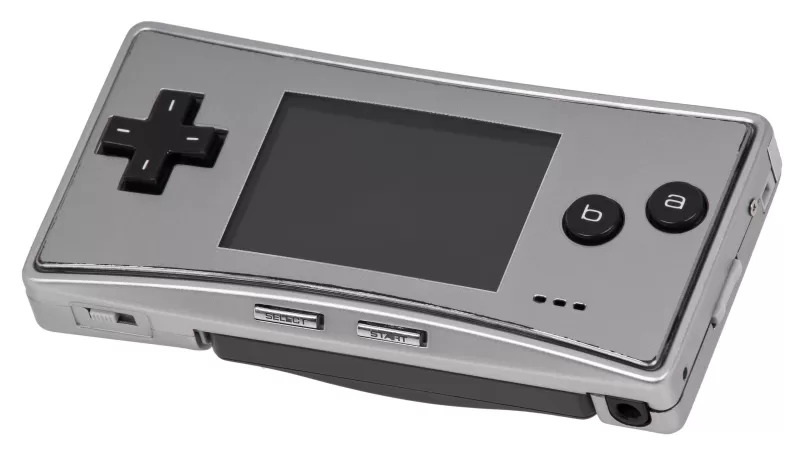 Revealed by Reggie Fils-Aimé at E3 2005, the Game Boy Micro impressed with its compact size and backlit screen. Despite its short production run, it offered a high-quality portable gaming experience.
Revealed by Reggie Fils-Aimé at E3 2005, the Game Boy Micro impressed with its compact size and backlit screen. Despite its short production run, it offered a high-quality portable gaming experience.
Nintendo DS Lite - June 11, 2006
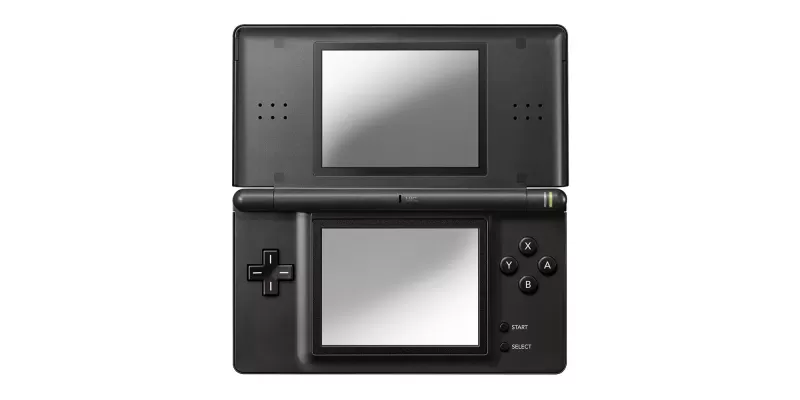 Nintendo DS Lite refined the original DS with a slimmer design, brighter screens, and improved battery life. These enhancements made it a favorite among gamers looking for a more portable and versatile experience.
Nintendo DS Lite refined the original DS with a slimmer design, brighter screens, and improved battery life. These enhancements made it a favorite among gamers looking for a more portable and versatile experience.
Nintendo Wii - November 19, 2006
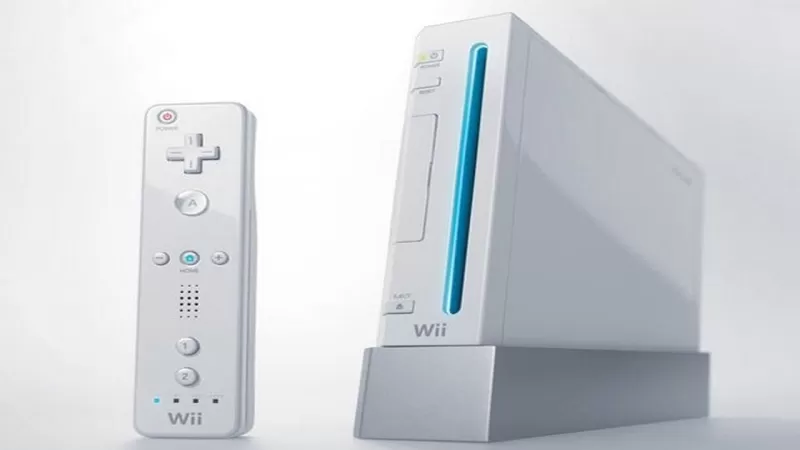 Nintendo Wii revitalized the home console market with its motion-controlled Wii Remote. Its backwards compatibility with GameCube games and the introduction of the Virtual Console for classic titles made it a groundbreaking system.
Nintendo Wii revitalized the home console market with its motion-controlled Wii Remote. Its backwards compatibility with GameCube games and the introduction of the Virtual Console for classic titles made it a groundbreaking system.
Nintendo DSi - November 1, 2008
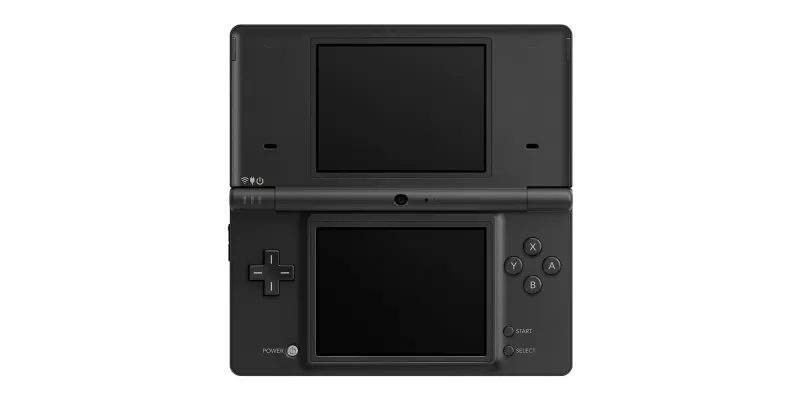 Nintendo DSi added cameras and an SD card slot to the DS line, enhancing its multimedia capabilities. However, it removed the Game Boy Advance slot, a notable change from its predecessors.
Nintendo DSi added cameras and an SD card slot to the DS line, enhancing its multimedia capabilities. However, it removed the Game Boy Advance slot, a notable change from its predecessors.
Nintendo DSi XL - November 21, 2009
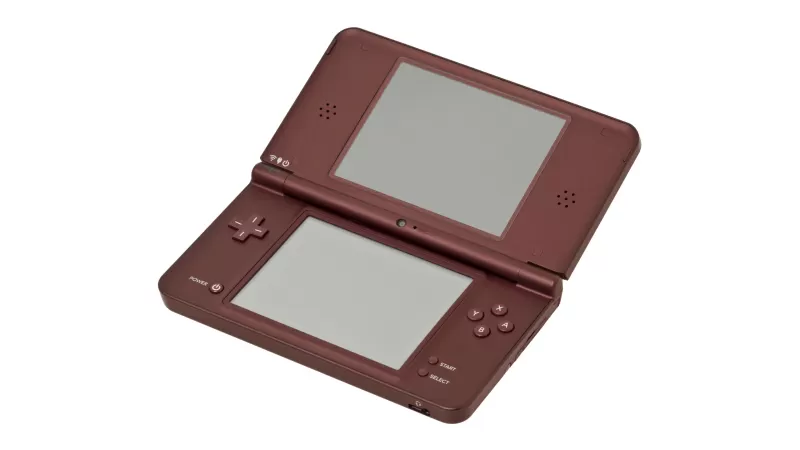 Offering larger screens and improved sound, the Nintendo DSi XL provided a more immersive gaming experience. Its enhanced features catered to gamers seeking a bigger and clearer display.
Offering larger screens and improved sound, the Nintendo DSi XL provided a more immersive gaming experience. Its enhanced features catered to gamers seeking a bigger and clearer display.
Nintendo 3DS - March 27, 2011
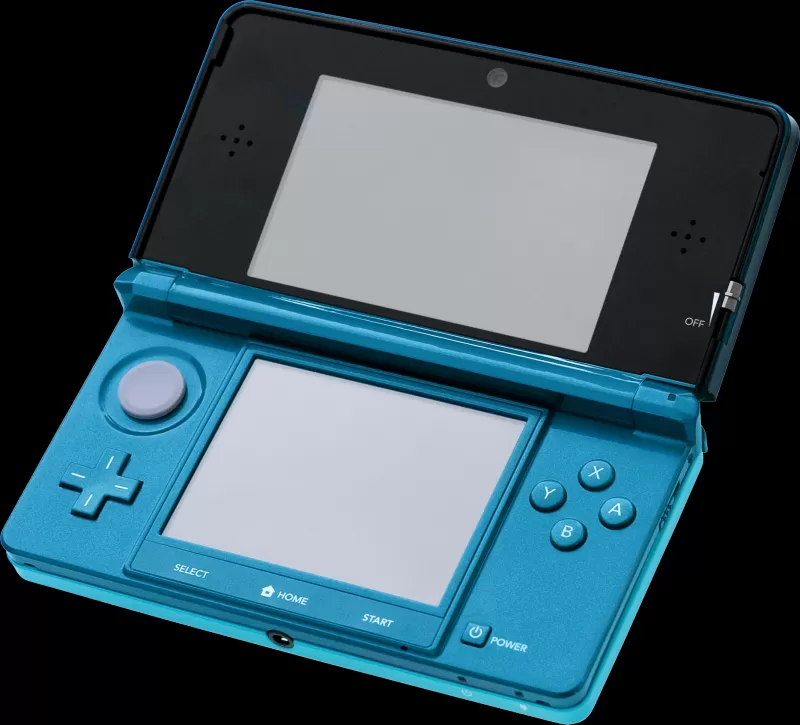 Nintendo 3DS introduced stereoscopic 3D gaming without the need for glasses, building on the success of the DS line. Its impressive library included titles like The Legend of Zelda: A Link Between Worlds and Super Mario 3D Land.
Nintendo 3DS introduced stereoscopic 3D gaming without the need for glasses, building on the success of the DS line. Its impressive library included titles like The Legend of Zelda: A Link Between Worlds and Super Mario 3D Land.
Nintendo 3DS XL - August 19, 2012
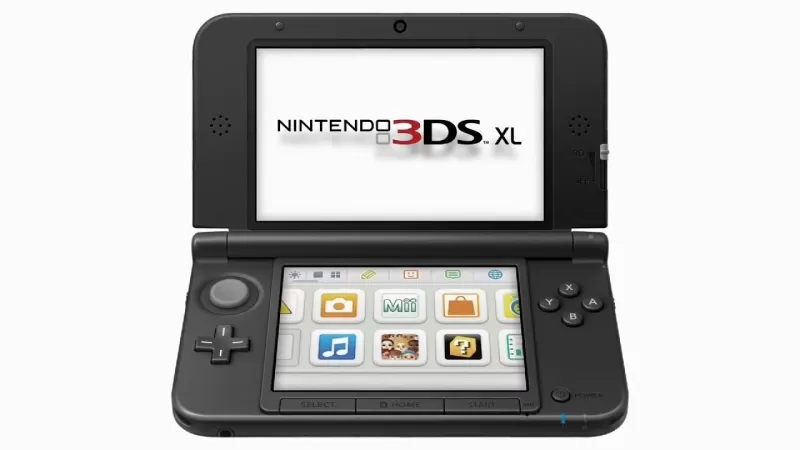 Nintendo 3DS XL offered a 90% larger screen than the original 3DS, enhancing the visual experience while retaining all the features of its predecessor.
Nintendo 3DS XL offered a 90% larger screen than the original 3DS, enhancing the visual experience while retaining all the features of its predecessor.
Nintendo Wii U - November 18, 2012
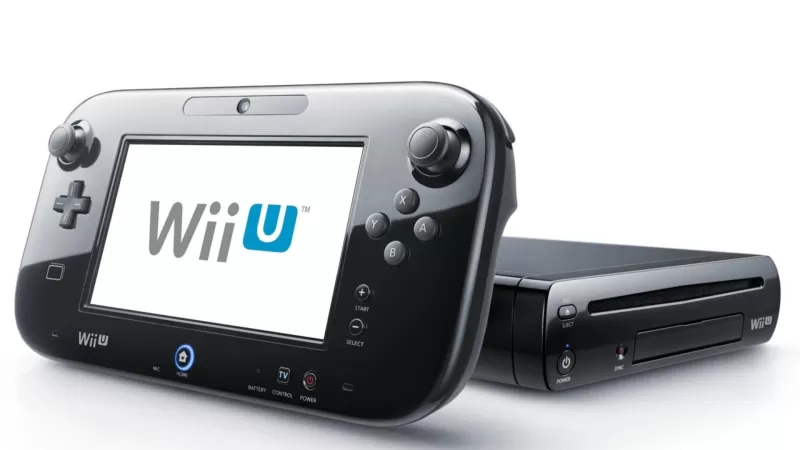 Nintendo Wii U introduced the innovative GamePad controller with a built-in screen, enabling off-TV play. Despite its strong lineup of games like Super Mario 3D World and Splatoon, it faced challenges due to poor marketing and consumer confusion.
Nintendo Wii U introduced the innovative GamePad controller with a built-in screen, enabling off-TV play. Despite its strong lineup of games like Super Mario 3D World and Splatoon, it faced challenges due to poor marketing and consumer confusion.
Nintendo Wii Mini - December 7, 2012
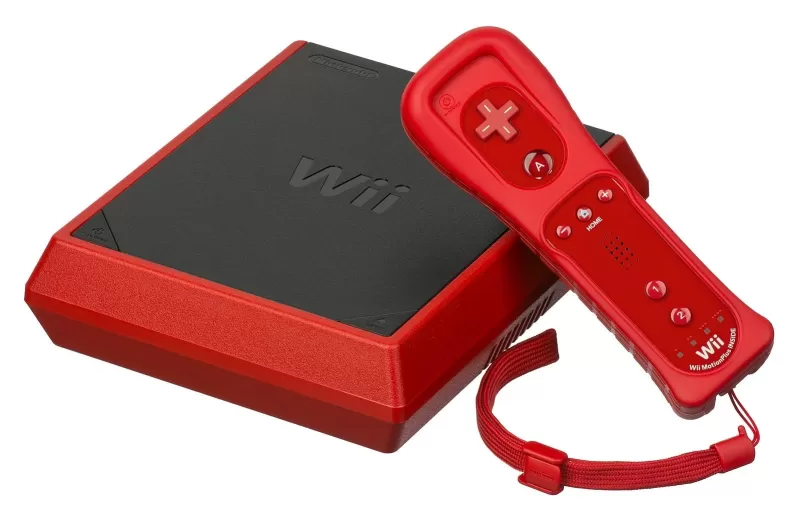 Wii Mini was a compact, budget-friendly version of the Wii, released near the end of its lifecycle. It removed several features to cut costs, including GameCube compatibility and Wi-Fi support.
Wii Mini was a compact, budget-friendly version of the Wii, released near the end of its lifecycle. It removed several features to cut costs, including GameCube compatibility and Wi-Fi support.
Nintendo 2DS - October 12, 2013
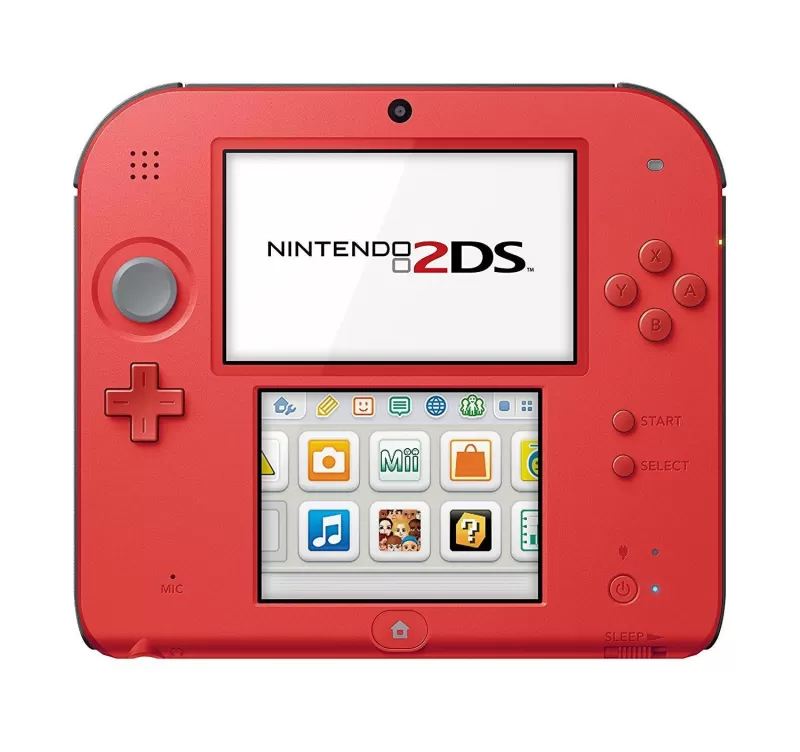 Nintendo 2DS offered a more affordable entry into the 3DS gaming ecosystem by removing the 3D feature. Its unique design and lower price point made it an attractive option for budget-conscious gamers.
Nintendo 2DS offered a more affordable entry into the 3DS gaming ecosystem by removing the 3D feature. Its unique design and lower price point made it an attractive option for budget-conscious gamers.
New Nintendo 3DS - October 11, 2014
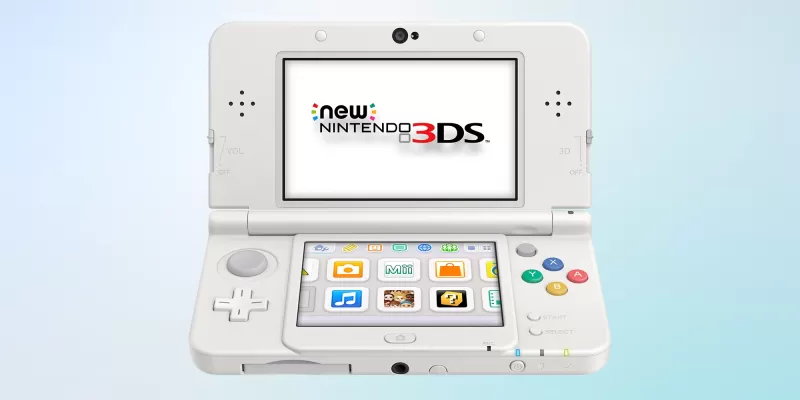 New Nintendo 3DS enhanced the original with new controls like the C-Stick and ZR/ZL buttons, as well as NFC support for amiibo. Its improved features provided a richer gaming experience.
New Nintendo 3DS enhanced the original with new controls like the C-Stick and ZR/ZL buttons, as well as NFC support for amiibo. Its improved features provided a richer gaming experience.
New Nintendo 3DS XL - February 13, 2015
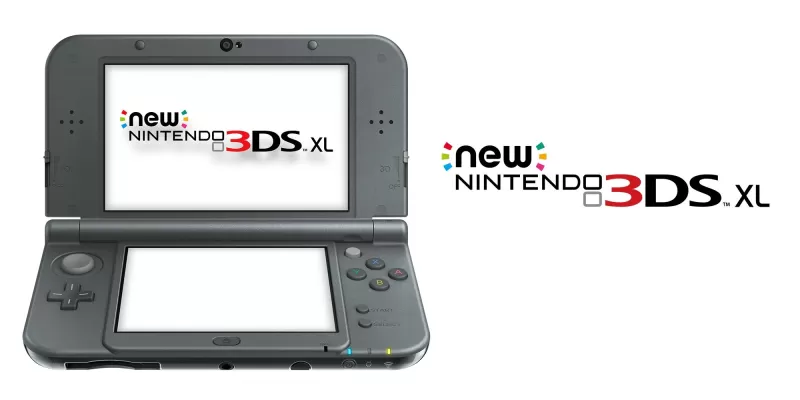 With larger screens and the same enhancements as the New Nintendo 3DS, the New Nintendo 3DS XL offered an even more immersive experience. Its design, however, removed the ability to change face plates.
With larger screens and the same enhancements as the New Nintendo 3DS, the New Nintendo 3DS XL offered an even more immersive experience. Its design, however, removed the ability to change face plates.
Nintendo Switch - March 3, 2017
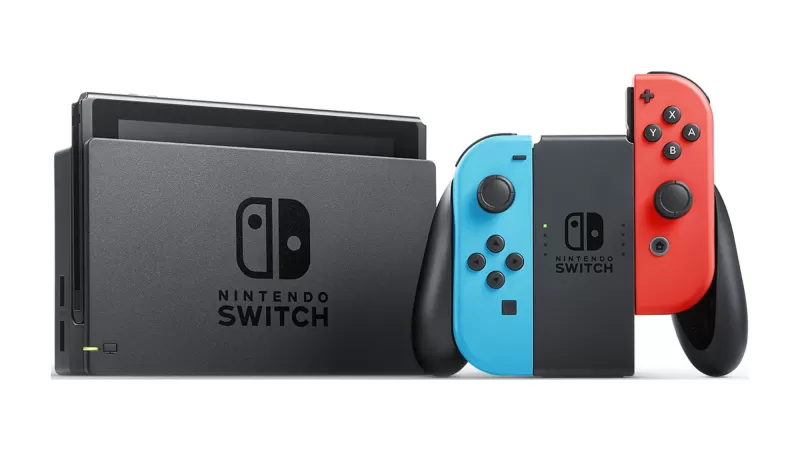 Nintendo Switch combined the power of a home console with the flexibility of a handheld, redefining gaming on the go. Its stellar first-party library and versatile design have propelled it to the top of the gaming industry.
Nintendo Switch combined the power of a home console with the flexibility of a handheld, redefining gaming on the go. Its stellar first-party library and versatile design have propelled it to the top of the gaming industry.
New Nintendo 2DS XL - July 28, 2017
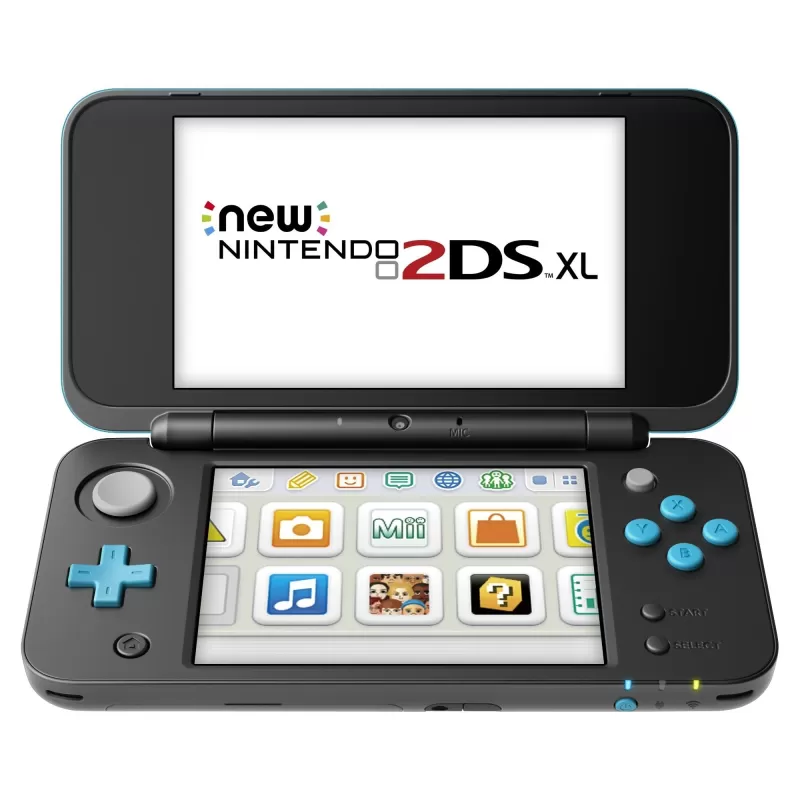 New Nintendo 2DS XL brought back the clamshell design and added features like an analog stick and amiibo support. Its ability to play New 3DS titles expanded its gaming library.
New Nintendo 2DS XL brought back the clamshell design and added features like an analog stick and amiibo support. Its ability to play New 3DS titles expanded its gaming library.
Nintendo Switch Lite - September 20, 2019
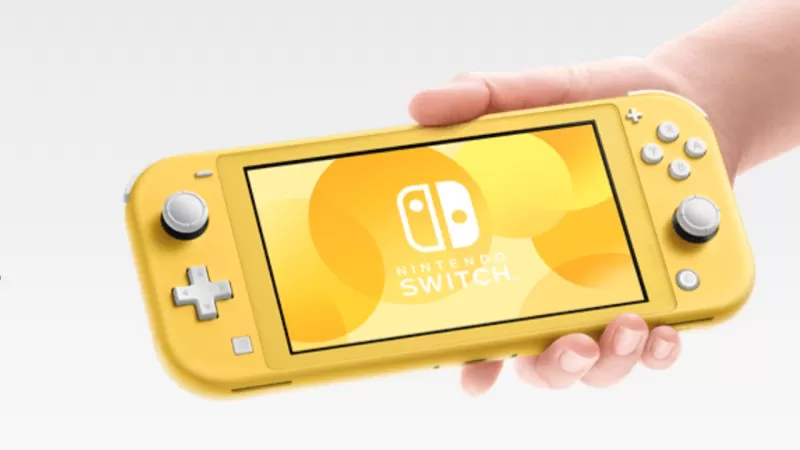 Nintendo Switch Lite offered a more portable and affordable version of the Switch, with built-in controllers and a focus on handheld play. Its compact design and lower price made it an appealing option for on-the-go gamers.
Nintendo Switch Lite offered a more portable and affordable version of the Switch, with built-in controllers and a focus on handheld play. Its compact design and lower price made it an appealing option for on-the-go gamers.
Nintendo Switch OLED model - October 8, 2021
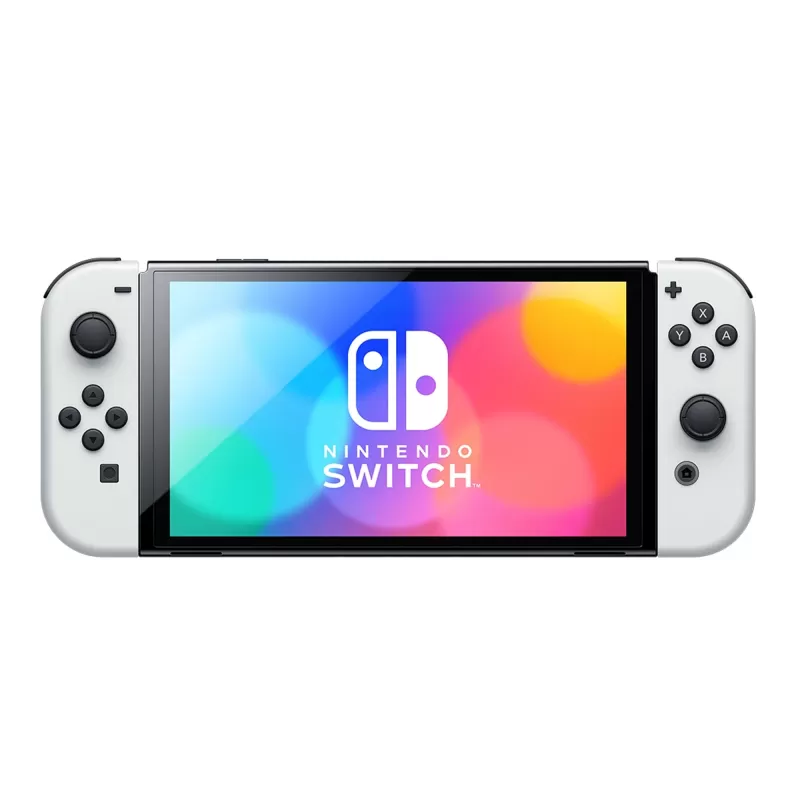 Nintendo Switch OLED model introduced a larger, high-quality OLED screen and enhanced audio and kickstand features. Released alongside Metroid Dread, it offered a premium gaming experience.
Nintendo Switch OLED model introduced a larger, high-quality OLED screen and enhanced audio and kickstand features. Released alongside Metroid Dread, it offered a premium gaming experience.
Upcoming Nintendo Consoles
After years of speculation, Nintendo has officially unveiled the Nintendo Switch 2. The reveal showcases a new way to attach Joy-Cons, a larger screen, and a second USB-C port. The Joy-Con's new mouse-like functionality hints at innovative gameplay possibilities, and the trailer suggests a new Mario Kart with 24-player support. The console will be "mostly" backward compatible, supporting both physical and digital games.Analysts estimate the Nintendo Switch 2 will be priced around $400. We've gathered all the known details from the trailer, and more information, including a release date, is expected during the upcoming Nintendo Direct on April 2.
AnswerSee Results- 1 Zenless Zone Zero [ZZZ] Codes (December 2024) – 1.4 Livestream Codes Feb 08,2025
- 2 Capcom Spotlight February 2025 and Monster Hunter Wilds Showcase: Everything Announced Mar 05,2025
- 3 New LEGO Sets for March 2025: Bluey, Harry Potter, and More Mar 06,2025
- 4 Gothic 1 Remake Demo: Frame-by-Frame Comparison with Original May 01,2025
- 5 Blazing Conquest: Conquer Lords Mobile on Mac with BlueStacks Air Feb 21,2025
- 6 PUBG Mobile Redeem Codes for January 2025 Live Now Feb 13,2025
- 7 "Tower of God: New World Introduces Alphine and Kaiser" Jun 28,2025
- 8 Pokémon TCG Pocket Unveils Premium Pass and Trade Tokens Apr 21,2025
-
Best Racing Games to Play Now
A total of 10
-
Top Business Management Apps for Android
A total of 10
-
Best Competitive Multiplayer Games on Android
A total of 10








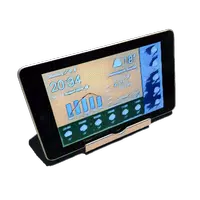

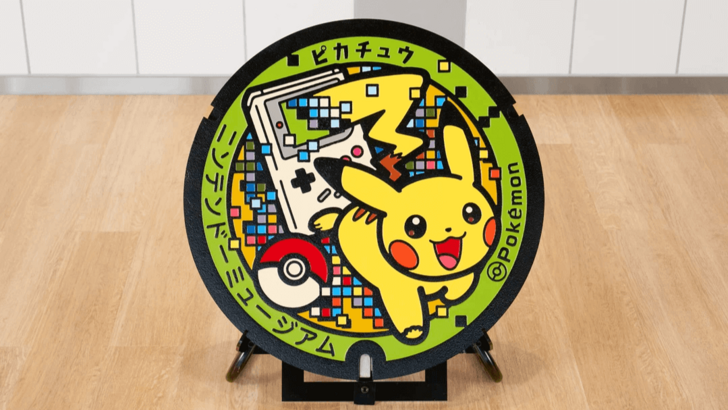







![Business of Loving [v0.12.5i] [Dead End Draws]](https://imgs.96xs.com/uploads/18/1719555107667e5423ef803.jpg)
